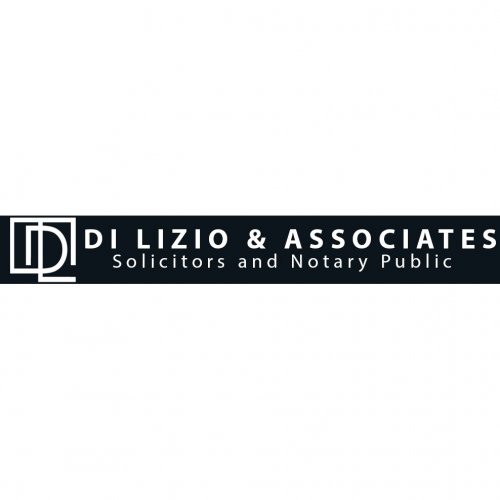Best Estate Planning Lawyers in Hurstville
Share your needs with us, get contacted by law firms.
Free. Takes 2 min.
List of the best lawyers in Hurstville, Australia
About Estate Planning Law in Hurstville, Australia
Estate planning in Hurstville, Australia, involves organizing and managing an individual's assets during their lifetime and after their death. It ensures that assets are distributed according to the individual's wishes while minimizing taxes and legal complications. Estate plans can include documents like wills, trusts, powers of attorney, and advance care directives. Given the complexities of laws and regulations in New South Wales, consulting with a qualified estate planning lawyer is beneficial for managing these legal instruments effectively.
Why You May Need a Lawyer
Several situations necessitate legal assistance in estate planning:
-Complex Estates: If your estate includes substantial assets, businesses, or intricate family circumstances.
-Family Dynamics: Where there are blended families, or potential disputes among heirs.
-Legal Compliance: To ensure your estate plan complies with the latest laws and regulations.
-Tax Implications: To understand and minimize potential tax liabilities.
-Asset Protection: Securely managing assets for future generations or beneficiaries with special needs.
-Updating Documents: Regularly updating your estate plan in response to changing laws or personal circumstances.
Local Laws Overview
In Hurstville, estate planning is governed by the laws of New South Wales. Key aspects include:
-Succession Act 2006: Governs wills and succession, including the statutory rules of intestacy which apply if a person dies without a will.
-Inheritance Tax: While Australia does not have an inheritance tax, estate planners should consider capital gains tax implications for their beneficiaries.
-Family Provision Claims: Certain eligible people can challenge a will if they feel they've been inadequately provided for.
-Powers of Attorney and Guardianship: Legal instruments allowing others to manage your affairs in case of incapacity.
Frequently Asked Questions
What is an estate plan?
An estate plan is a collection of documents and arrangements that dictate how your assets will be managed and distributed after your death, and who will make decisions on your behalf if you're unable to do so during your lifetime.
Do I need a will if I have a small estate?
Yes, having a will ensures that whatever assets you have, regardless of size, are distributed according to your wishes rather than according to the default laws of intestacy.
How often should I update my estate plan?
It's recommended to review your estate plan every 3-5 years or whenever a significant life event occurs, such as marriage, divorce, birth of a child, or acquisition of significant assets.
Can I prepare my estate documents without a lawyer?
While DIY options are available, consulting a lawyer ensures that your documents comply with legal requirements and effectively reflect your intentions, especially for more complex estates.
What happens if I die without a will?
If you die intestate, your assets will be distributed according to the statutory rules of intestacy, which may not align with your personal wishes.
What is the role of an executor?
An executor is responsible for managing and distributing your estate according to your will. This includes settling debts, expenses, and taxes before distribution.
What is a power of attorney?
A power of attorney is a legal document that allows someone to make decisions on your behalf if you're unable to do so, especially regarding financial or personal matters.
Is estate planning only about distributing assets?
No, it also includes planning for incapacity, minimizing taxes, and ensuring your healthcare wishes are honored through tools like advance care directives.
What should I consider in selecting a guardian for my children?
Consider the potential guardian's values, relationship with your children, ability to care for them, and financial situation.
Can my overseas property be included in my Australian estate plan?
Yes, but you'll need to consider the legal requirements of the country where the property is located, possibly requiring assistance from legal professionals in that jurisdiction.
Additional Resources
Several resources can assist those seeking estate planning advice:
-NSW Trustee & Guardian: Provides support tools and services for will writing and estate planning.
-The Law Society of New South Wales: Offers resources to find accredited specialists in estate planning.
-Australian Taxation Office: For information on tax implications related to estate assets.
Next Steps
If you require legal assistance with estate planning, consider the following steps:
-Determine your goals and priorities for your estate plan, including asset distribution and care directives.
-Compile a comprehensive list of your assets, liabilities, and personal documents.
-Consult with a qualified estate planning lawyer in Hurstville to discuss your needs and develop a customized plan.
-Regularly review and update your estate plan to reflect any changes in personal circumstances or legislation.
Lawzana helps you find the best lawyers and law firms in Hurstville through a curated and pre-screened list of qualified legal professionals. Our platform offers rankings and detailed profiles of attorneys and law firms, allowing you to compare based on practice areas, including Estate Planning, experience, and client feedback.
Each profile includes a description of the firm's areas of practice, client reviews, team members and partners, year of establishment, spoken languages, office locations, contact information, social media presence, and any published articles or resources. Most firms on our platform speak English and are experienced in both local and international legal matters.
Get a quote from top-rated law firms in Hurstville, Australia — quickly, securely, and without unnecessary hassle.
Disclaimer:
The information provided on this page is for general informational purposes only and does not constitute legal advice. While we strive to ensure the accuracy and relevance of the content, legal information may change over time, and interpretations of the law can vary. You should always consult with a qualified legal professional for advice specific to your situation.
We disclaim all liability for actions taken or not taken based on the content of this page. If you believe any information is incorrect or outdated, please contact us, and we will review and update it where appropriate.










